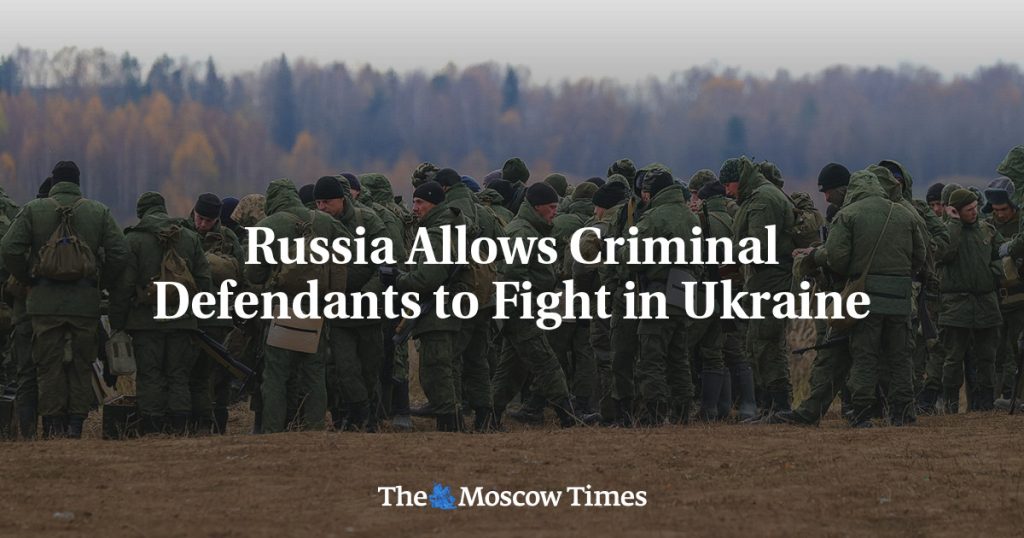President Vladimir Putin recently signed laws that allow defendants in criminal cases to sign military contracts and be deployed to fight in Ukraine. These new amendments expand the pool of potential recruits for Russia’s ongoing war. Under the amendments, defendants who sign military contracts can have their criminal cases suspended or even have their prosecution terminated at the request of a military unit. Soldiers with criminal records can have them expunged if they are presented with state awards for their conduct on the battlefield. However, serious felonies like treason, espionage, terrorism, and sex crimes are not eligible for pardon under the new laws.
In a move to increase the number of contract servicemen for the Armed Forces, the lower-house State Duma passed similar amendments in March allowing the recruitment of convicted prisoners and detainees whose cases have not yet been submitted to court. The Defense Committee chair, Andrei Kartapolov, believes that these amendments will expand the pool of potential recruits for the military. It is estimated that approximately 40% of Russia’s 60,000 criminal defendants will be recruited for the war in Ukraine, according to an anonymous source in the Defense Ministry cited by IStories, an investigative outlet.
The practice of recruiting prisoners for the war in Ukraine was initially started by the Wagner mercenary group in 2022, but the Defense Ministry took over prison recruitment in early last year. Reports indicate that these prisoner-recruits have suffered some of the most severe losses among Russian forces in Ukraine. While the new amendments will allow for the recruitment of more individuals into the military who are currently facing criminal charges, the exclusion of defendants charged with serious felonies shows that there are still limitations to who can be recruited under these laws. It is uncertain how these new recruits will affect the ongoing conflict in Ukraine and the overall strategy of the Russian Armed Forces.
The decision to allow defendants in criminal cases to sign military contracts and be deployed to fight in Ukraine raises ethical concerns regarding the recruitment of individuals who are facing legal charges. It is unclear what impact this move will have on the overall effectiveness and morale of the Russian military. With reports indicating that prisoner-recruits have suffered significant losses in the conflict, there are concerns about the well-being and treatment of these individuals. The exclusions of serious felonies from the list of pardonable crimes show that there are boundaries to who can participate in this recruitment program.
As the conflict in Ukraine continues, the use of criminal defendants as potential recruits for the Russian military adds a new dimension to the ongoing war. The amendments allowing for the recruitment of prisoners and defendants facing criminal charges mark a significant shift in recruitment strategies for the Russian Armed Forces. It remains to be seen how this new recruitment policy will impact the dynamics of the conflict in Ukraine and how it will affect the overall military strategy of Russia in the region. The inclusion of more individuals with criminal backgrounds in the military raises questions about the ethical implications of using such recruits in an armed conflict.


